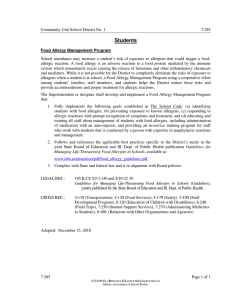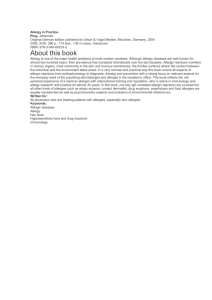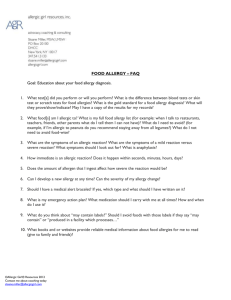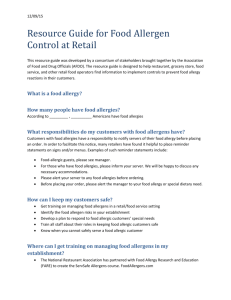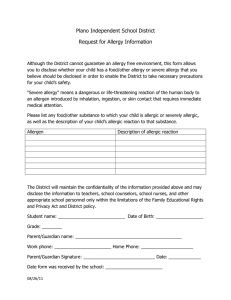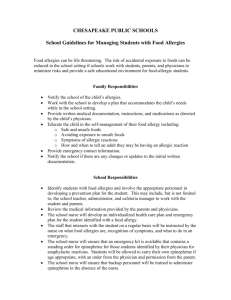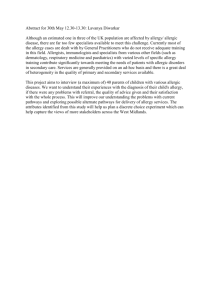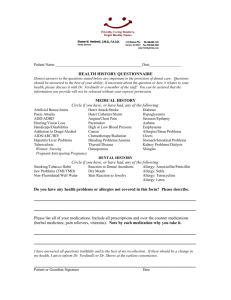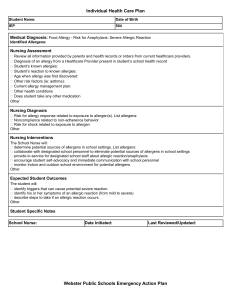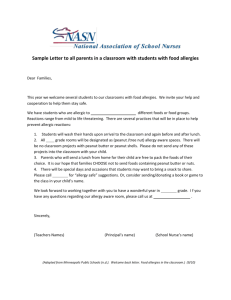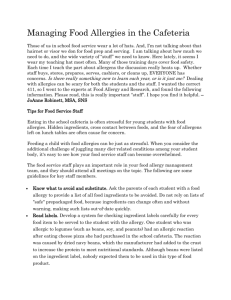Additional Food Guidelines
advertisement
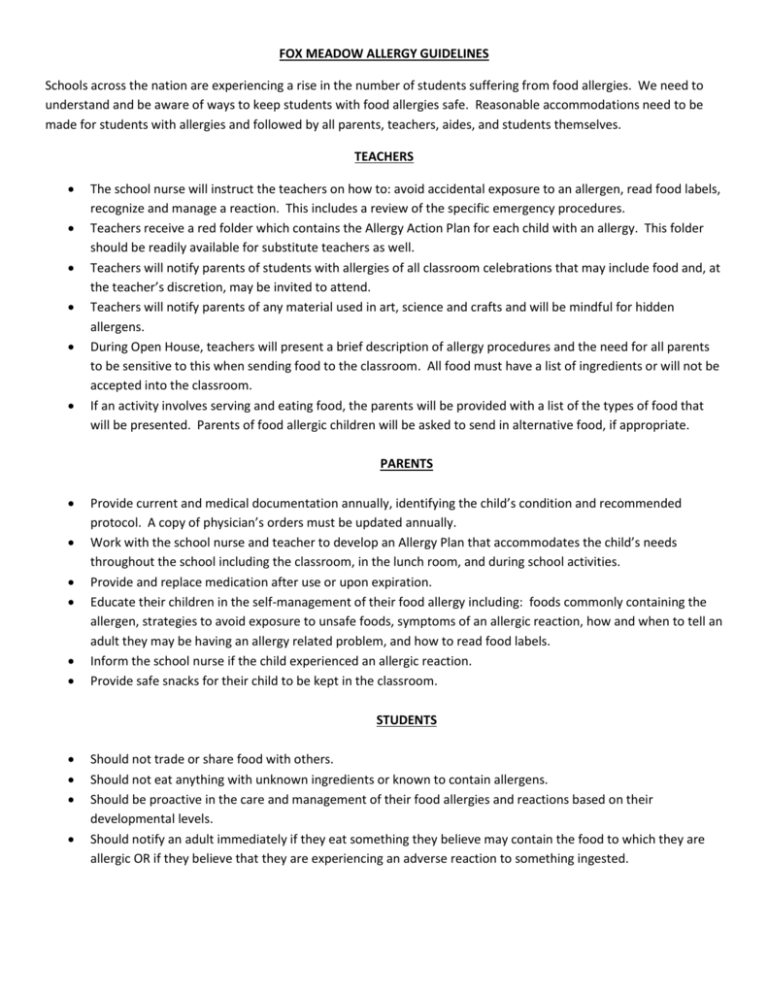
FOX MEADOW ALLERGY GUIDELINES Schools across the nation are experiencing a rise in the number of students suffering from food allergies. We need to understand and be aware of ways to keep students with food allergies safe. Reasonable accommodations need to be made for students with allergies and followed by all parents, teachers, aides, and students themselves. TEACHERS The school nurse will instruct the teachers on how to: avoid accidental exposure to an allergen, read food labels, recognize and manage a reaction. This includes a review of the specific emergency procedures. Teachers receive a red folder which contains the Allergy Action Plan for each child with an allergy. This folder should be readily available for substitute teachers as well. Teachers will notify parents of students with allergies of all classroom celebrations that may include food and, at the teacher’s discretion, may be invited to attend. Teachers will notify parents of any material used in art, science and crafts and will be mindful for hidden allergens. During Open House, teachers will present a brief description of allergy procedures and the need for all parents to be sensitive to this when sending food to the classroom. All food must have a list of ingredients or will not be accepted into the classroom. If an activity involves serving and eating food, the parents will be provided with a list of the types of food that will be presented. Parents of food allergic children will be asked to send in alternative food, if appropriate. PARENTS Provide current and medical documentation annually, identifying the child’s condition and recommended protocol. A copy of physician’s orders must be updated annually. Work with the school nurse and teacher to develop an Allergy Plan that accommodates the child’s needs throughout the school including the classroom, in the lunch room, and during school activities. Provide and replace medication after use or upon expiration. Educate their children in the self-management of their food allergy including: foods commonly containing the allergen, strategies to avoid exposure to unsafe foods, symptoms of an allergic reaction, how and when to tell an adult they may be having an allergy related problem, and how to read food labels. Inform the school nurse if the child experienced an allergic reaction. Provide safe snacks for their child to be kept in the classroom. STUDENTS Should not trade or share food with others. Should not eat anything with unknown ingredients or known to contain allergens. Should be proactive in the care and management of their food allergies and reactions based on their developmental levels. Should notify an adult immediately if they eat something they believe may contain the food to which they are allergic OR if they believe that they are experiencing an adverse reaction to something ingested.
